It is a great story and movie, of close-knit family and community as an extended family where you helped each other though you may have your hierarchy and differences. This movie depicts exactly how mummy explained about the old caste system. In the movie it is referred to as tradition. Without tradition, you may loose balance and fall---just like the fiddler on the roof might.
Our ancestors lived simple, but very connected to God, nature and each other. Yes, traditionally the villages were almost self-sufficient. At the top strata you have the rich land owner farmers (Vellalar), the medicine man (Pariyari), the priests (Iyar), Accountants & keepers of law ( Muthaliyars), and the teacher (Vaathiyar) who received the most respect from all. The last three were usually educated Vellalar carrying out these important roles in the village.Then you have the next strata---working farmers, traditional chefs (Pandari) carpenters (Thatchan), goldsmiths (Thattar), blacksmiths (Kollar), the traders (Chetti's) and fishermen. While the barber and dhoby (laundryman) are considered lower caste everyone in the village needed them and no function good or bad happens without them. There were drummers (Paraiyar), Handymen (Nalavar), tree climbers/toddy collectors (pallar) and even those with unique expertise of balance walking the "Thula" for drawing water from the well.
As beautifully explained in the "Fiddler on the Roof"---with traditions, each one knew their place in the society and knew what GOD expected of them. It was an essential strategy in oldtimes for the survival and peace of the whole village. The caste system was the same. Each caste had an expertise and served the whole society;everyone depended on each other. Even the rich/noble landowner needed the service of the barber everyday to shave his face; no one had their own razor those days.
This was actually a good system, because fathers taught their trade secret to their sons. The families stayed close and did not have to worry about what the son would do when he grows up. The whole village knew where and who the experts were for carpentry or cooking for a wedding reception, etc. The sons would accompany their fathers to help on such special occasions and by the time the sons are grown up the village would already recognize their expertise and the father's good name. I believe it was an effective business model in which you build your clients from childhood. Since the good name was important everyone worked sincerely, cared and delivered good service to each other.
On festive days people would go to greet each other with some home made gift---simple but made with care. The landowners and rich traders usually gave new clothing, money, rice or fruits to those who render services to them. No one went starving either and if someone had some difficulty, people would know and would help as much as they could.
In essence, everyone was everyone else's business; no one can be an island. Of course it could be a nuisance at times, because you have to make every move carefully. One mistake and your name is ruined for life. Marriages were proposed strictly within the castes for several reasons: keeping family trade and expertise within families, different castes had lifestyles very different from others, dowry system and indigenous law (Thesavalamai). Caste system was carried on for generations, because it was an effective and efficient way of living a peaceful life.
The traditional caste system was never meant to separate people. Only with the western imperialistic influence, the caste system took a turn towards master and slave attitude. Education was the key that eventually opened those doors that closed due to superiority complex. But, unfortunately the modern education takes people away from the families and the communities and confine them into boxed cubicles---in skyscrapers and isolated apartments surrounded with noisy gadgets. And again, if you think about it, we still have an artificial hierarchy and chain of command even in modern work place that you are expected to follow. We have traded peace to bring chaos and ruthless rule of money (not mercy).
I think ancient people were wise and knew more than what we think they knew. We are probably going to find out "ignorance is bliss" and "simplicity is luxury!"
I am my mother's daughter!
Copyright©2011 VeerajaR
+copy.jpg)
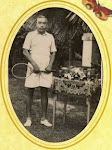

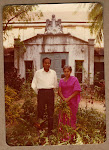-Uduvil-GrandmaHouse.jpg)



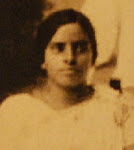




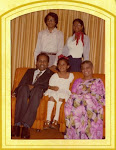
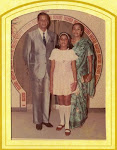

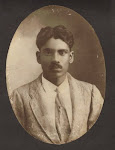





No comments:
Post a Comment